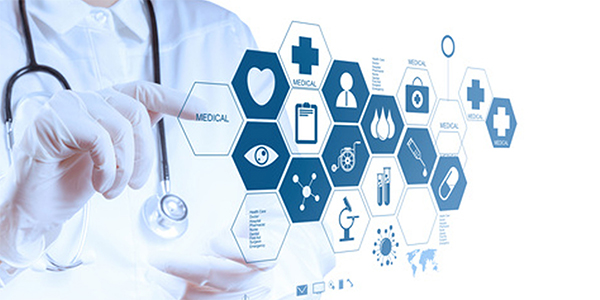Career Definitions – MEDICAL
[ads2]
BIOMEDICAL ENGINEERING(DEG/PG/Ph.D)
Bio-medical engineers are highly trained scientists who employ engineering and bio-behavioral science principles in research conducted on the biological aspects of animal and human life.
[divider style=”solid” top=”20″ bottom=”20″]
MEDICAL RECORD MANAGEMENT (DIP)
Doctors and Hospitals set up maintain permanent file for every patient they treat.This file is known as medical record or chart.It includes the patients medical history, results of physical examinations, reports of X-ray and laboratory test, diagnosis and treatment plans, doctor’s orders and notes and nurse’s notes.It also gives the dates of admission and discharge.
[divider style=”solid” top=”20″ bottom=”20″]
CLINICAL PATHOLOGY (DIP)
This involves laboratory tests of blood, urine etc, for detecting deficiencies and diseases in them, as well as to study the contents.
[divider style=”solid” top=”20″ bottom=”20″]
CLINICAL PSYCHOLOGY (DIP / PG)
A branch of psychology primarily concerned with the diagnoses and treatment of mental diseases.Clinical psychologists study human behavior and mental processes to understand, explain and change people’s behavior help the mentally or emotionally disturbed adjust to the life.Clinical psychology is that branch of Psychology that deals with scientific, analytical examination and treatment of neurotic and other abnormalities of human behavior.
[divider style=”solid” top=”20″ bottom=”20″]
EXPERIMENTAL MEDICINE (PhD)
The scientific investigation of medical problems by experimenting upon animals or by clinical research.
[divider style=”solid” top=”20″ bottom=”20″]
IMMUNOL – HEMATOLOGY (DIP)
Immunol – hematologist cross match the blood of the donor and the recipient for compatibility.They perform the other blood tests and maintain the equipment and supplies of blood in several different forms to be used for transfusion.
[divider style=”solid” top=”20″ bottom=”20″]
MEDICAL & SOCIAL PSYCHIATRY (PG)
Social work designed to support and supplement psychiatric treatment.They provide individual and group therapy for patients suffering from psychiatric problems.They help plan for supportive services to help patients return to community.
[divider style=”solid” top=”20″ bottom=”20″]
MEDICAL & SOCIAL PSYCHOLOGY (PG / PHIL)
It’s the study of human behavior and its effects on the body.Psychiatrist job is to treat people who are mentally or emotionally disturbed.
[divider style=”solid” top=”20″ bottom=”20″]
MEDICAL MICROBIOLOGY (DIP)
A medical micro – biologist examines specimens of micro – organisms, including viruses, fungi, parasites and bacteria, and identify the germs that cause the diseases.
[divider style=”solid” top=”20″ bottom=”20″]
MEDICAL TECHNOLOGY – PHARMACOLOGY & PHYSIOLOGY (PG)
Pharmacology is the branch of science which has to do with drugs with all their relations.Physiology is the science that deals with living organisms and their parts and their functions.
[divider style=”solid” top=”20″ bottom=”20″]
MEDICAL INSTRUMENT TECHNICIAN (DIP)
Medical instruments have to be maintained, treated and kept ready for the use under special conditions.This course teaches the same.
[divider style=”solid” top=”20″ bottom=”20″]
ANESTHESIA (DIP / PG)
Anesthesia is to produce painless condition in a part of a body to perform Surgery. Artificially induced unconsciousness or local or general insensibility to pain.
[divider style=”solid” top=”20″ bottom=”20″]
ANESTHESIOLOGY & ENDOSCOPY (DIP)
Anesthesia is to produce painless condition in a part of a body to perform Surgery. Endoscopy is a process of passing of tubes light into the body to see if there is any disease.
[divider style=”solid” top=”20″ bottom=”20″]
ANESTHESIOLOGY (DIP / PG)
The medical study and application of Anesthesia.
[divider style=”solid” top=”20″ bottom=”20″]
CARDIO THORACIC SURGERY (PG)
Cardio thoracic surgery deals with the study of Heart surgery.
[divider style=”solid” top=”20″ bottom=”20″]
CARDIOVASCULAR THORACIC SURGERY (PG)
Cardiovascular surgery deals with the surgery of blood vessels of heart.
[divider style=”solid” top=”20″ bottom=”20″]
GENERAL SURGERY (PG)
The branch of Medicine that has to do with external diseases (except those of skin ) and all accidents amenable to operative or medical treatment.
[divider style=”solid” top=”20″ bottom=”20″]
GENITO URINARY SURGERY (PG)
Genito urinary surgery deals with the surgery of Kidney and Bladder.
[divider style=”solid” top=”20″ bottom=”20″]
GYNAECOLOGY (DIP / PGDIP / PG)
Gynaecology is medical science that deals with the functions and diseases peculiar to women especially of reproductive organs.
[divider style=”solid” top=”20″ bottom=”20″]
HUMAN ANATOMY (DEG)
Human anatomy is the medical science dealing with the study of bones, muscles and nerves.
[divider style=”solid” top=”20″ bottom=”20″]
HUMAN SURGERY (DEG / PG)
The branch of Medicine that is concerned with the treating of diseases, injuries or deformities in human beings by operation with surgical instruments.
[divider style=”solid” top=”20″ bottom=”20″]
NEURO SURGERY (DEG / PG)
The surgery performed by a physician on the nervous system including the brain.
[divider style=”solid” top=”20″ bottom=”20″]
OBSTETRICS (DIP / PGDIP / PG)
Obstetrics is branch of medical science which includes parental care and childbirth, pregnancy and its related fields.
[divider style=”solid” top=”20″ bottom=”20″]
OPTHALMOLOGY (DIP / PGDIP / PG)
Opthalmologists are physicians who specalize in medical diagnosis and treatment of eye and vision disorders, especially diseases and injuries to the eye. Opthalmologists may perform eye surgery and prescribe drugs or other eye treatment, including corrective lenses.
[divider style=”solid” top=”20″ bottom=”20″]
ORTHOPAEDIC SURGERY (DIP / PGDIP / PG)
Orthopaedic surgery is the branch of medical science which deals with bones and joints.
[divider style=”solid” top=”20″ bottom=”20″]
PEDIATRIC SURGERY (DIP / PGDIP / PG)
Pediatric surgery is the surgery performed on children.
[divider style=”solid” top=”20″ bottom=”20″]
UROLOGY (PG)
Urology is the field of medicine related to study, diagnosis and treatment of any malfunctions or diseases of the urinary tract such as kidney, bladder and ureter.
[divider style=”solid” top=”20″ bottom=”20″]
MEDICAL INSTRUMENT TECHNOLOGY(DIP)
Medical instrument have to be maintained, treated and kept ready for use under special conditions.
[divider style=”solid” top=”20″ bottom=”20″]
YOGA (PGDIP)
In Hindu philosophy, union of self with an higher being by a system of ascetic practice, meditation etc, designed to achieve and is known as yoga.
[divider style=”solid” top=”20″ bottom=”20″]
AYURVEDIC MEDICNE & SURGERY (DIP / DEG / PG)
It is a treatment of diseases through ayurvedic medicines prepared from natural herbs and minerals.
[divider style=”solid” top=”20″ bottom=”20″]
CARDIOLOGY (DIP / PG)
E.C.G technicians operate a machine called an electrocardiograph, which records graphic tracings of heartbeats called electrocardiogram.These tracings indicate the electrical impulses transmitted by the heart muscles during and between heartbeats.
[divider style=”solid” top=”20″ bottom=”20″]
CHEST DISEASES (DIP / PGDP / PG)
Illness pertaining to chest diseases affecting the thorax, the front surface of the body from the neck to waist.
[divider style=”solid” top=”20″ bottom=”20″]
CHILD HEALTH (DIP / PGDIP / PG)
Assistant to doctors who specialize in pediatrics.Studies concerning with all aspects of child birth.
[divider style=”solid” top=”20″ bottom=”20″]
DERMATOLOGY (DIP / PGDIP / PG)
Dermatology is the science of skin, its diseases and treatment.
[divider style=”solid” top=”20″ bottom=”20″]
FORENSIC MEDICINE (PG / PGDIP / DIP)
Medical knowledge as applied to issues involved in civil and criminal law especially in the proceedings in the court of law, where the report is taken into consideration.
[divider style=”solid” top=”20″ bottom=”20″]
GASTROENTEROLOGY (DEG / PG)
Gastroenterology is the study of throat, stomach and intestines.
[divider style=”solid” top=”20″ bottom=”20″]
GENERAL MEDICINE (PG)
The study of cause and treatment of human diseases, including healing, parts dealing with diseases which are treated by a physician or a surgeon.
[divider style=”solid” top=”20″ bottom=”20″]
HOMEOPATHIC SCIENCE (DIP / DEG)
It is a science of Medicine treating diseases through usage of minerals in their processed forms.
[divider style=”solid” top=”20″ bottom=”20″]
HUMAN PHYSIOLOGY (PG)
Human physiology is the study of function of organs.The biological science of essential and characteristic human life processes, activities and functions.
[divider style=”solid” top=”20″ bottom=”20″]
LARYNGOLOGY & OTOLOGY (DIP / PGDIP / PG)
Laryngology and Otology is ear, nose and throat.
[divider style=”solid” top=”20″ bottom=”20″]
MEDICAL ENTOMOLOGY (PG)
Medical Entomology is the study of parasites which cause diseases in human body.
[divider style=”solid” top=”20″ bottom=”20″]
PAEDIATRICS (DEG)
The science dealing with the medical care and treatment of diseases of children.
[divider style=”solid” top=”20″ bottom=”20″]
MEDICAL RADIO DIAGNOSIS (DIP / PGDIP / PG)
Medical radio diagnosis deals with the X-ray diagnosis.
[divider style=”solid” top=”20″ bottom=”20″]
MEDICAL RADIOLOGY (DIP / PG DIP / PG)
Medical radiology deals with the X-ray treatment.
[divider style=”solid” top=”20″ bottom=”20″]
MEDICAL TECHNOLOGY – PATHOLOGY (PG)
The medical science and specialist practiced , dealing with all aspects of disease, but with special reference to the essential nature, the causes and development of abnormal condition, as well as the structural and functional changes that result from the diseases.
[divider style=”solid” top=”20″ bottom=”20″]
MEDICAL TECHNOLOGY – RADIOLOGY (DEG / PG)
Actinology, the science that treats of radiant energy, of the chemical and other actions of the rays proceeding from luminous bodies, from radioactive substances, and from X-rays, and of the sources of these rays.
[divider style=”solid” top=”20″ bottom=”20″]
MEDICINE (DEG / PG)
The study of cause and treatment of human diseases, including healing, parts dealing with diseases which are treated by a physician or a surgeon.
[divider style=”solid” top=”20″ bottom=”20″]
NEPHROLOGY
Nephrology is a science of kidney and its diseases.
[divider style=”solid” top=”20″ bottom=”20″]
NEUROLOGY (PG)
Neurology is a science of the nerves or the nervous system and its diseases or disorders.
[divider style=”solid” top=”20″ bottom=”20″]
NEUROPHYSIOLOGY (PG)
Neurophysiology is the science of the functions of nervous system.
[divider style=”solid” top=”20″ bottom=”20″]
PATHOLOGY (DEG / PG)
The branch of biological science dealing with the nature of diseases, through study of its causes, its processes, and its effects, together with the associated alterations of structure and function, and the laboratory findings of disease, as distinguished from clinical signs and symptoms.
[divider style=”solid” top=”20″ bottom=”20″]
PHYSICAL THERAPY (DEG)
The treatment of bodily ailments by the application of physical agents such as heat and exercise.Physical therapists treat patties with fractures, sprains, nervous disease and heart trouble.Physical therapists prescribe exercises administer massages and perform body manipulations to correct body ailments.
[divider style=”solid” top=”20″ bottom=”20″]
PREVENTIVE & SOCIAL MEDICINE (DIP / PG)
Preventive and social medicine in the prevention of diseases by sanitation, vaccination etc.
[divider style=”solid” top=”20″ bottom=”20″]
PSYCHIATRIC MEDICINE (DEG / PG)
Psychiatrists are physicians who treat patients with mental, emotional and behavioral symptoms.
[divider style=”solid” top=”20″ bottom=”20″]
RADIATION MEDICINE (DEG / PG)
Radiation medicine is the science which deals with X-rays.
[divider style=”solid” top=”20″ bottom=”20″]
RESPIRATORY DISEASES (DIP)
Respiratory diseases is the science which deals with lungs.
[divider style=”solid” top=”20″ bottom=”20″]
THERAPEUTICS (DIG / PG)
Therapeutics is the science that deals with drugs, dose and toxic effects.
[divider style=”solid” top=”20″ bottom=”20″]
TROPICAL MEDICINES (DIP)
Tropical medicines refers to treatment of diseases which occur in tropical countries.
[divider style=”solid” top=”20″ bottom=”20″]
TUBERCULOSIS (DIP / PGDIP / PG)
A communicable disease of man and animals caused by a micro-organism effecting the lungs.
[divider style=”solid” top=”20″ bottom=”20″]
UNANI MEDICINE & SURGERY (DEG / PGDIP)
This involves the treatment of diseases through unani medicines prepared from juices of natural herbs.
[divider style=”solid” top=”20″ bottom=”20″]
VENEREOLOGY (DIP / PG DIP / PG)
Venereology is the science to treat the diseases of sexual organs.





